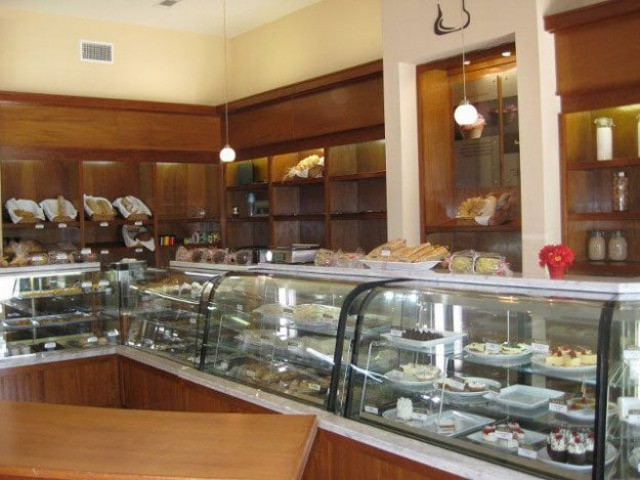Sweet opportunity: Gourmet’s offshore endeavours in the UK
Can provide reverse market production prospect for entity

PHOTO: COURTESY GOURMET PAKISTAN FACEBOOK PAGE
It was a timely opening of a quality confectionary and bakery brand for the South Asian ethnic group living in the UK. The month of Ramazan, rather paradoxically, is a boom phase for the food business, and the inauguration of Gourmet’s UK business is expected to bring good revenue to the company right at the start. However, the company will have to devise an innovative strategy for sustainability of its long-term operations in the UK.
Gourmet is a decent high street brand in Pakistan. The choice of Ilford Lane for opening of its first store in UK was, however, a bad decision in terms of brand development. Ilford Lane is by no means an area that any decent business would like to associate itself with.
It is a small road in East London, with small businesses popular amongst the low-income people living around. With the choice of venue for its first outlet, Gourmet has failed to make a statement worthy of its stature in Pakistan. On the other hand, Salt n Pepper, another Pakistani food brand, opened a restaurant in the heart of London at Leicester Square.
Existing sweets and confectionary businesses catering the South Asian communities include Royal Sweets, Ambala, Nirala Sweets, and the likes of Pooja Sweets.
South Asian sweets and confectionaries manufactured in the UK are one of the best, even in some cases better than the best of traditional sweets made in Pakistan. Many critics of traditional Pakistani/Indian sweets and food confirm that the quality of traditional sweets produced by Royal Sweets in the UK is far better than what is produced locally.
The traditional problem
The traditional sweets in Pakistan suffer from the quality of the ingredients. Even a basic ingredient like khoya, for the production of barfi, is either not pure or is made in compromised hygienic conditions. In fact, hygiene is a huge issue in the production of food items in Pakistan. Gourmet itself has in the past been fined for unhygienic conditions.
Opening operations in UK presents an opportunity to Gourmet to adopt the British standards of food production and, hence, export its sweets to the countries around the world, using UK as hub of its international business.
It can actually create a niche market for the upper middle and upper classes in Pakistan to start importing Gourmet from its London outlets. Gourmet can create a reverse market back home for its products in the UK.
Case study
This is a similar model to what Jaguar Land Rover (JLR) has adopted after it was acquired by Tata Motors. Since the change in ownership of JLR, the company has started producing Jaguar XF and Freelander 2 in India not only for the domestic market but also for exporting to other emerging markets. The company has for some time been toying with the idea of producing in India and selling in the UK – the traditional home market for Jaguar.
Gourmet can revolutionise the food production in Pakistan through its UK operations. Milk, the basic ingredient of Pakistani traditional sweets, is available in abundance and without any impurities.
Other ingredients, including nuts and dry fruits, used in the traditional sweets are available in the best quality in the UK.
Such a high quality of ingredients, combined with the best practices of hygiene and British standards of production, will put Gourmet above its competitors in Pakistan.
It is hoped that Gourmet will not get stuck at Ilford Lane and similar low-income locations for its further expansion. Rather it should create a prestigious British brand around its quality products that deserve much better than what they at present have at Ilford Lane.
THE WRITER IS AN ECONOMIST AND A PHD FROM CAMBRIDGE UNIVERSITY
Published in The Express Tribune, June 22nd, 2015.
Like Business on Facebook, follow @TribuneBiz on Twitter to stay informed and join in the conversation.



















COMMENTS
Comments are moderated and generally will be posted if they are on-topic and not abusive.
For more information, please see our Comments FAQ